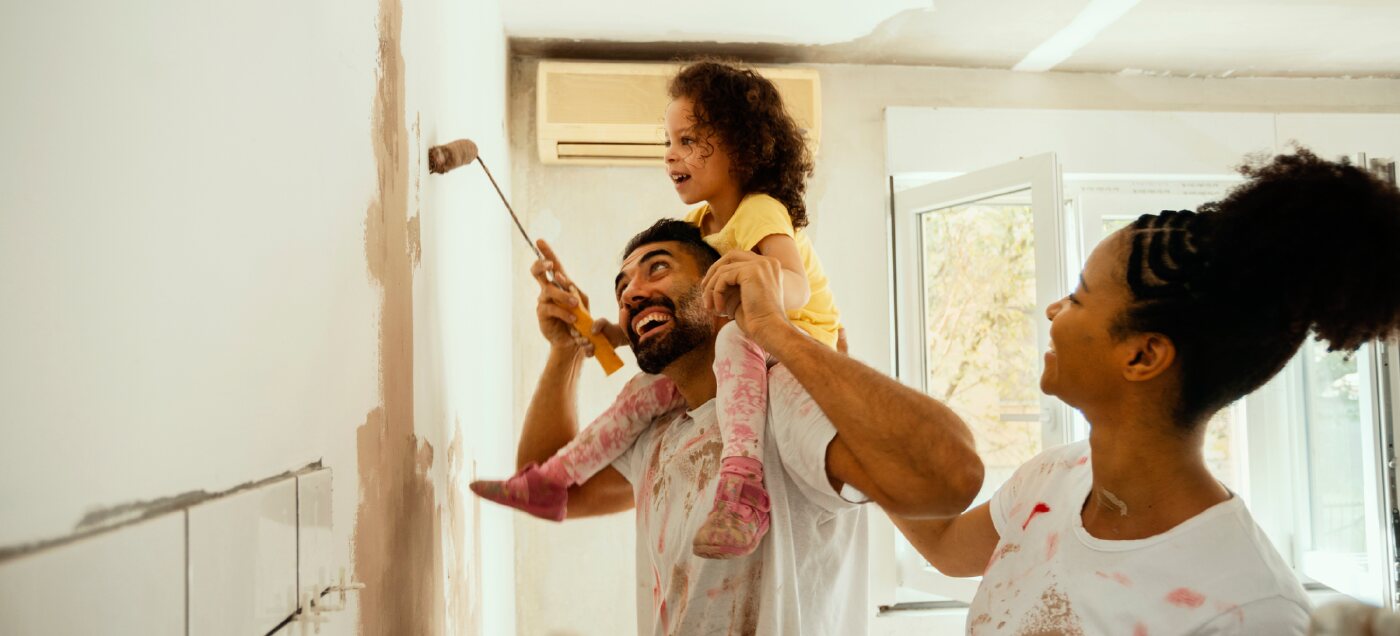
Should you renovate or sell? How to decide
Tossing up between renovating to stay in your home, and selling to move on, is a very personal choice. For some people, the right decision comes down to dollars and cents, while others are driven by fluctuations in the property market or simply the desire for a change of scene.
If you’ve found yourself at a crossroads when deciding whether to renovate your home or sell up, let’s look at some of the pros, cons, and questions to ask that could help you find a clear path forward.
What can I actually afford to do?
It’s time to work out a few scenarios, so you can get a better idea of what your budget would look like either way. Draw up two spreadsheets – one for renovating and one for selling – and start to flesh out the columns with what each direction would cost.
First National Real Estate CEO Ray Ellis says the major costs involved with selling a home and buying a new one include conveyancing, stamp duty, marketing and fees for agents and solicitors. He points out that while these costs haven’t changed much over time, the costs of building materials and the labour required for a renovation have risen substantially post pandemic.
‘You must consider your available budget for renovating against the potential advantages of a new property, where everything may suit you perfectly from the moment you walk in the door,’ he says.
Asking the tough questions
Scott Aggett, a property adviser and founding director of buyer’s agency Hello Haus, says home owners who are sitting on the fence between renovating and selling should ask themselves some key questions:
- Do I have the budget, time, skill, creativity and contacts (architect, draftsperson, builder, interior designer) to undertake a renovation?
- How will a renovation impact my quality of life during the process?
- Does the style of my home or floor plan allow for an easy renovation?
- Will the overall build plus extra costs be financially viable right now?
- If I renovate, will the home tick boxes for future buyers?
- Do I know the current value of the home versus what it would be worth when the renovation is complete?
- Would it be cheaper and easier to sell and buy a bigger/modernised home locally?
- What are the costs of a potential sale and then purchase?
- If I sell, does my future home actually exist within my budget?
Avoiding common mistakes
Scott says there are plenty of pitfalls no matter which pathway you decide to take. For instance, many renovators see their projects go awry because of poor planning or failing to educate themselves around the process and options available.
‘[Many renovators] get lazy when determining the real costs involved, as well as the time it may take to execute a renovation. They may also cut corners on truly knowing if the works they plan will overcapitalise on their home.’
He says there are also errors made when selling. ‘A surprising number of vendors only speak to one real estate agent when looking at selling their property. Sellers should run a competitive process with the three local leading agents for their asset type and price point. This will ensure they gauge the real market price and understand the range of selling options, including method of sale, marketing advice and sliding-scale performance fees versus fixed percentage sale costs.’

Refinancing for renovations or relocating
Once you have a ballpark figure for either renovating or selling, visit BOQ’s Budget Planner and Savings Calculator so you can get savvy about your money.
If renovating, you might choose to refinance your home loan in order to access extra cash from your existing equity. Otherwise, if you decide to sell and buy another home, you can crunch your future financial position with the BOQ Loan Repayment Calculator.
According to Ray, home owners should consider what they can afford today versus their ultimate financial goals.
‘Depending on your circumstances, the potential financial benefits of renovating include avoiding the costs of selling, improving your home’s functionality and comfort, increasing its value and lowering its energy costs,’ he says.
‘The potential disadvantages of renovating rather than selling are the risk of overcapitalising if you’re inexperienced, blowing your budget and underestimating how long a renovation will take.’
Reasons for renovating your current home
Homeowners choose the renovation route for many reasons. It can be a crucial step when getting ready to sell, a way to transform your tired and dated property into a dream home, or a method of turning it into a profitable income-producing investment.
Preparing to sell
Before listing a property for sale, you’ll want to present it in its best light. Consider updates long before listing because, depending on the size of the renovation, time will be your best friend. A change of flooring, window dressings or a fresh coat of paint are relatively quick and inexpensive fixes. However, the renovations that turn buyer heads the most – as well as add significant value – are often more time-consuming and expensive projects, like a whole new kitchen or bathroom(s).
Redoing a rental
An investment property is a great source of passive income, but sometimes you’ve got to spend money to make money. You might want to renovate between tenants to significantly increase the rent and ensure the property remains desirable for years to come.
Small touches like new paint, floors or kitchen appliances can impress quality renters, so the outlay needn’t be big for a decent return. And remember: renovations, new fixtures and fittings on an investment property are all tax deductible.
Designing your dream home
Perhaps you love where you live, but your home needs a makeover. Ask yourself how long you plan to stay in the property to make it worth your while financially. But essentially, renovating allows you to create your ideal home while avoiding all the annoying parts of relocating.
Pros of renovating
Home improvement
Renovations will improve the comfort and functionality of your home, as well as solve many of those everyday annoyances, whether it’s a lack of space, poor soundproofing, or an out-of-date kitchen.
Value add
Your home could become a lot more valuable with a considered renovation. What your home is worth might not matter to you today, but a makeover might give your future finances a facelift.
Cons of renovating
Risk of overcapitalising
Spending too much is a common renovation blunder. It might feel like money should be no object when creating your dream home, but you want to increase the property’s value – not put yourself in unnecessary debt.
Timeline blowouts
Experienced renovators stick to a timeline – and then allow a little wriggle room. Inevitably, there’ll be hiccups along the way, so it’s not uncommon for renovations to overrun. Delays can be annoying when you’re waiting for shiny new appliances but can turn pricey when you need to extend your alternative accommodation or pay for more labour.
Hidden costs
Poor planning, bad time management and not identifying hidden costs such as extra trades, rising damp or termites can add up to a disastrous (and expensive) renovation. If you burn your budget before the job is done, you might end up living in a half-finished home.
Reasons for selling your current home
Renovations can fix many bugbears around the home, but nothing can change your home’s location. If the ‘where’ is bothering you more than the ‘what’, perhaps it’s time to sell. Consider also that some properties simply don’t have the bones to become a dream home, so moving on might be best.
Pros of selling
Make an upgrade
By taking the equity – and accumulated capital growth – you have in your property, you can upsize to a bigger and better home or move to a more desirable place near the lifestyle amenities you love or school catchments you’d prefer if this fits in with your budget and financial plans.
Tick every box
Sometimes renovations can only achieve so much but can’t get you everything on your wish list. When you have the option to buy a completely different house, then a sea of possibilities opens (within your budget, of course).
Cons of selling
It’s stressful
Depending on the market in which you’re selling (and then buying into), the process could be swift and relatively pain free, or drawn out and stressful. So, take the temperature of the local market before listing.
It’s expensive
By the time you add up conveyancing fees, marketing costs, agent commission, stamp duty and property styling and staging, the bill for selling your home can run into the tens of thousands of dollars. You also run the risk of the sale price falling short of expectations, and not having as much to spend on the new home of your dreams.
We're with you, whichever road you take
Whether you decide to sell up or stay put, BOQ is here to help you each step of the way. To help discover what options you might have, why not book in for a Home Loan review? Think of it as a health check for your home loan.
If it's renovating that's got your attention, check out our Home Renovation Hub, where we have all the help you need to understand how to finance your home improvements.


